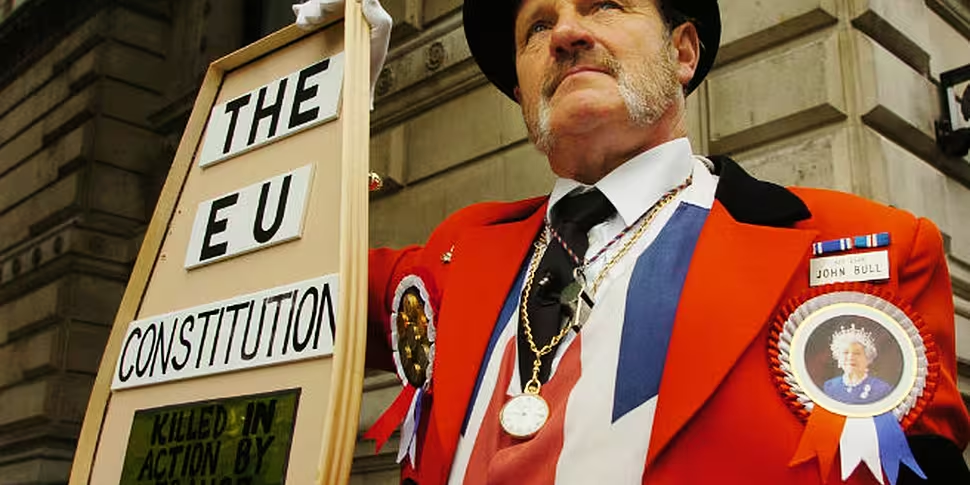The return to government of The Conservative party last May ensured that an in/out referendum on British EU membership will happen before the end of 2017.
British Prime Minister David Cameron has said that he hopes to renegotiate the terms of the UK's EU membership at the next European Council meeting in February.
1. Brexit and the Irish
A wide series of studies have found that the negative economic impact on the Irish economy if the UK leaves the EU will be greater than any negative effects that it would have on the UK's economy.
Open Europe says that a British exit would result in a permanent loss of between 1.1 to 3.1% of Ireland's GDP between now and 2030.
Taoiseach Enda Kenny will meet with British Prime Minister David Cameron in London today - Mr Kenny is expected to reiterate the potential impact that the UK leaving could have on Northern Ireland.
The Financial Times reports that the Irish government is sympathetic to attempts to mobilise an Irish vote to keep the UK in the EU - but it will be conscious of not being seen to directly intervene in the vote.
Charlie Flanagan, Minister for Foreign Affairs told the newspaper that Ireland will "not be actively campaigning."
Some 350,000 Irish citizens are currently living in the UK and eligible to vote in the referendum, and a further 100,000 UK citizens live in the Republic of Ireland.
2. What exactly is the UK looking for?
Mr Cameron and The Conservatives' reform demands come under four headings:
- Economic governance: The UK wants explicit recognition that the euro is not the EU's only currency. This is a safeguard against any future movement to push for increased financial union in Europe. It is also to exclude Britain from any future bailouts for eurozone states. The UK wants to ensure that non-euro nations are not marginalised.
- Competitiveness: It wants a commitment to reducing red tape and the "burden" of excessive regulation within the single market.
- Sovereignty: Britain wants to opt out of the EU's founding commitment to an 'ever closer union' - this marks a rejection of future greater political integration. The UK also wants national parliaments to have greater powers to block EU legislation.
- Immigration: David Cameron's government is pushing for immigration reforms which will restrict access to benefits for in-work and out-of-work migrants. It wants to deny benefits for migrants who have not been resident in the UK for at least four years. Sources in the UK's civil service are reported by the BBC to have said that this period could be cut to one year.
3. New economic warnings
In a note today, Credit Suisse said that a British exit from the EU would lead to an immediate 2% drop in the UK's GDP and it is possible that this loss would never be recovered.
Its analysts write:
"Overall, the vote to leave the EU would entail an immediate and simultaneous economic and financial shock for the UK. We are likely to see an immediate contraction in GDP, which can be seen as a front-loading of the fall in UK national income that leaving the EU would imply for the UK.
"In the medium term, we expect it to be negative for both UK demand and supply implying a weaker GDP growth path. The recovery from the snap recession is likely to be more muted, making the GDP level post leaving meaningfully lower than if the UK votes to stay."
It forecasts that being cut off from Europe's single market will have a massive impact on the British economy, leading to companies relocating, and a loss of future business.
4. Poll of polls
As part of Credit Suisses's research, it has complied a poll, aggregating a number of recent opinion polls, it finds that most voters are likely to choose to remain in the EU.

5. Pharma and the spin war
Fears expressed by leaders in the pharmaceutical industry echo Credit Suisse's note.
They say that leaving the EU would isolate British scientists would reduce the country's influence in the sector.
However, those who support a Brexit point to the success of the Swiss pharmaceutical industry and claim that the pro-Europe forces are engaged in a "fear' campaign to convince voters to choose to stay in the EU.









